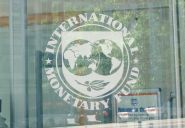
The US-based agency indicated that the election of President Joseph Aoun will pave the way for the formation of a fully empowered new government, with Aoun benefiting from the backing of international donors.
The international agency noted that the Lebanese economy contracted by approximately 10% in 2024 but anticipates a recovery in economic activity by 2025, provided that the ceasefire remains in effect.
According to the report, the Lebanese economy is expected to contract by 2% in 2025 and grow by 0.8% in 2026. Meanwhile, the study showed that inflation levels decreased from 221.3% in 2023 to 67.4% in 2024. These are expected to further decline to 41.3% in 2025 and 35.1% in 2026.
Moody's revealed that fully restoring state institutions' operations is essential to advancing the implementation of the ceasefire agreement with Israel, signed on November 27, and to securing much-needed international funding. The agency noted that the recent war severely impacted Lebanon's economy, with total losses estimated at $8.5 billion, including $3.4 billion in material damage.
Furthermore, it stated that cutting financial and investment expenditures is essential for achieving exchange rate and price stability, but it undermines long-term growth potential. The agency emphasized that debt sustainability can only be achieved through a significant reduction in the public debt-to-GDP ratio, which is projected to reach 150% by the end of 2024.



Comments